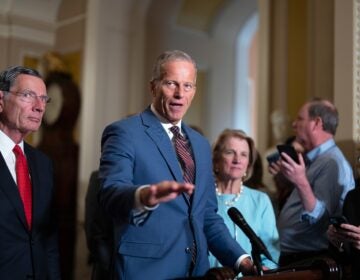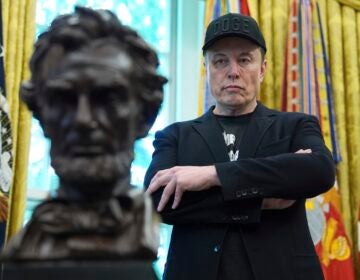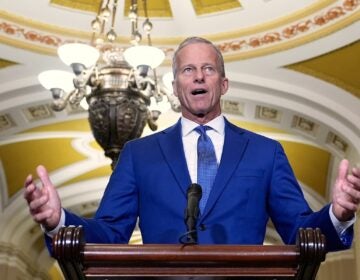Not just Bill Moyers and Cokie Roberts — Subsidies for political media come in many shapes
Last Monday, you may recall, I went on WHYY-FM to conduct a mock interview with Big Bird. Don’t worry, I’m not going to reprise my sad falsetto impression of the famous, yellow-feathered fowl.
Instead, let’s talk about some responses I got from thoughtful conservatives.
They wrote to disagree after I mocked the notion that Mitt Romney’s debate one-liner about axing PBS funding was in any way a serious opening bid at balancing the federal deficit.
The commenters pressed one point: Why should their tax dollars go to media enterprises they regard as hostile to their values?
It’s a fair question. It also makes a different point from the one I was addressing in that piece, but it deserves a serious response.
A few points:
The federal government is a $2.3 trillion enterprise. It stands to reason that no matter who you are, some of that dough will get spent on projects you don’t like, or at the very least, would gladly do without.
That’s part of the great stakes of democracy. We hold elections largely to decide who gets to see less of their money spent on stuff they dislike.
But public media’s critics sometimes frame their complaint as though the federal budget contains no parallel to NPR and PBS, no other place where a project of public information gets funded by the tax dollars of people who don’t agree with the project.
For the sake of this discussion, let’s not argue the issue of whether NPR and PBS really are as biased as the critics claim.
Instead, let’s zero in on this question: Are conservatives really uniquely burdened in this way? Is there really NO place where federal policy, by contrast, subsidizes media projects that are uncongenial to, say, a typical Philly liberal’s views?
Ever heard of the Heritage Foundation? Or the American Enterprise Institute? These well-heeled think tanks have long been the intellectual engines of the conservative movement. They put theoretical ballast and media push behind policies such as the Iraq war, the Bush tax cuts, the deregulation of Wall Street.
Yet, even if you disagree vehemently with what comes out these places, you support them indirectly.
How is that so?
While clearly political in thrust, these think tanks (just like their liberal counterparts such as the Center for American Progress) are 501(c)(3) nonprofit organizations. This means donations to them are tax-deductible.
And that, folks (as Joe Biden might say), is a federal subsidy – different in kind, but just as real as Big Bird’s.
When corporations or affluent individuals seeking to put research heft behind their agendas write big checks to Heritage or AEI, they are getting a tax break for what is essentially a political act.
I’m not saying this tax benefit is wrong. Or that it should end. I think this is all just fine.
I’m just saying this shows Bill Moyers and Cokie Roberts are not unique examples of federally subsidized political media.
Postscript: The above is a modified transcript of the radio commentary airing Monday on WHYY. I know as surely as the sun rises in the East that someone will object to my connecting of public media subsidies with Heritage Foundation’s tax exemption on this basis:
“You can only call a tax break an expenditure if, like the socialist you are, Satullo, you believe that the government owns all my wealth and resists taking it all from me only out of the goodness of its heart. In other words, all taxation is theft and illegitimate, so when governments offers me a tax deduction, it’s not doing me a favor. It is only giving me back what is mine.”
Let me say this about that: I really don’t know how to reason with people who say “all taxation is theft.” Where do they think bridges and roads and cops and firefighters and air traffic controllers come from? In other words, all the people and things that keep us from a Hobbsean state of chaos? They come from taxes. Taxes are the dues we pay to have a somewhat peaceful and decent society.
Also, I would point out that Mitt Romney and Paul Ryan, following John McCain before them, do seem to regard tax breaks as a form of government subsidy that can be withdrawn to meet a higher societal goal. After all, they plan to eliminate most tax loopholes and most exemptions for specific behavior as a way to pay for the big cuts in marginal tax rates that they propose.
So getting a discount on the normative tax rate because of who you are, or some behavior that you perform, is in fact a form of government subsidy, right? It hardly seems fair, when balancing budgets, to look only at those subsidies that come in the form of a budget allocation (i.e. Big Bird) but not those that arrive clothes as a tax break.
WHYY is your source for fact-based, in-depth journalism and information. As a nonprofit organization, we rely on financial support from readers like you. Please give today.




